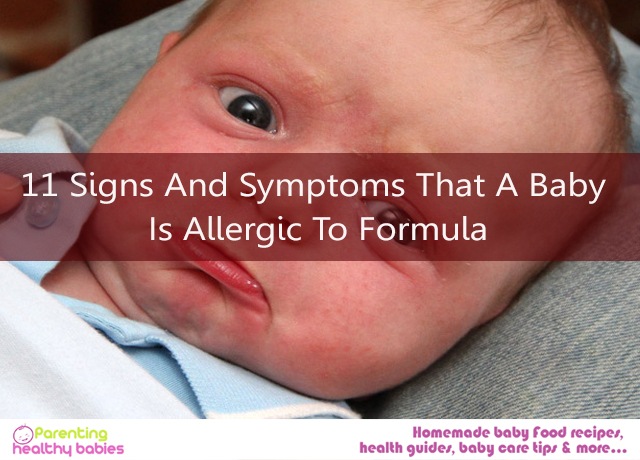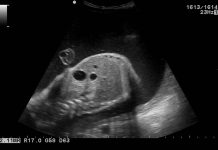Understanding if your baby has a problem might get quite difficult at times as the little one cannot tell of his/her problems. However, he/she might show clear signs and symptoms when at unrest or uncomfortable. Taking your infant to the pediatrician is recommended if you cannot figure out what is wrong.
Many babies are allergic to formula food. Formula intolerance is quite common in babies and happens due to reactions to various formula ingredients. Read on to know about the various signs and symptoms, which are closely associated to formula allergy in babies:
Read More: Is coconut safe for kids with nut allergy?
11 Signs And Symptoms That A Baby Is Allergic To Formula
1. Episodes of Diarrhea
There are times when it is not possible to distinguish diarrhea from normal baby stool. Generally baby stools are loose when compared to that of adults. In fact, infants can have 7-8 stools per day, which is normal. With formula intolerance, the child might have excessively frequent stools, watery stools or might have mucus in the stool as well. Keep a note for bloody stools.
Read More: 11 Best Health Benefits of Quenepas for Children
2. Vomiting and spitting up
Spitting up after eating is quite common in infants and is a process of normal growing up. If the spitting up is not forceful or painful there is nothing to worry. However, if it is vomiting, it might be an indication for formula intolerance. It might also point to other health concerns.
Read More: Top 7 Causes for Child Vomiting
3. Bouts of colic
If you find your kid to be extremely fussy almost all throughout the day or for many hours in a day, there is need to worry. The child cries inconsolably, usually in the evening and night. Signs of abdominal pain, abdominal distension, and gas are common and these might be caused due to formula intolerance.
Read More: Colic Baby: 11 Signs and Symptoms
4. Skin rash
Skin rash is probably the most common sign and symptom, which is associated with formula intolerance. The rashes can be scaly and itchy and is known as atopic dermatitis in medical parlance. In infants, the rashes generally appear on the face, arms, scalp and legs. Formula allergies can also lead to formation of hives on skin.
Read More: 11 Natural Ways to Treat Drool Rash in Babies
5. Extreme gassiness
Burping after feeding is mandatory in kids so that the gas formed comes out. Since the intestine in babies is not fully developed, gas formation is common. Gas pain is common in the first 3 months and then again from 6-12 months, when the infant tries new foods. Keep a note of foods which makes the baby gassy.
Read More: 14 Home Remedies for Gaseousness and Farting in Babies
6. Respiratory problems
When your baby catches cold, he/she might have respiratory problems. However, if you notice wheezing, shortness of breath, excess mucous in the nose, it could be more than cold. These might be signs of allergic reactions and it can be a formula allergy as well. Milk allergy is quite common in this regard.
7. No or low weight gain
Different babies have different shapes and sizes. The amount of weight they gain is dependent on many factors. The amount and kind of food fed and genetic factors are some common factors on which weight gain depends in babies. If your baby has no or very slow weight gain, it can be an indication of formula allergy. See a pediatrician immediately.
8. Swollen or puffy eyes
Like adults, babies also get puffy and swollen eyes due to lack of sleep. Though very small babies sleep almost all throughout the day, some babies might miss sleep for some reason. And not sleeping can get them puffy eyes. However, if the baby is sleeping well and still getting puffy and swollen eyes, it can be a case of allergic reaction to formula food or to other kinds of allergy triggers.
9. Constant coughing
Babies can have a dry cough or wet cough. While the latter kind indicates some kind of bacterial infection and respiratory disease; dry cough is often associated to allergies and cold and it won’t just go away. Find the cause of the allergy and know that it is not from formula food.
10. Lip swelling
Lip swelling can be caused if the baby has bumped into something and hurt himself/herself on the lips. But if something of this kind has not happened, it might be an allergic reaction to something that has come in contact with the lips. Formula food can definitely be a reason causing the allergy.
11. Constant sneezing
Sneezing is common in babies. But if the extent of sneezing goes beyond normal, it is definitely a cause for worry for the parents. Formula food might cause some kind of allergic reaction and that might trigger sneezing in kids. Consulting with a pediatrician is the best idea in this regard.













